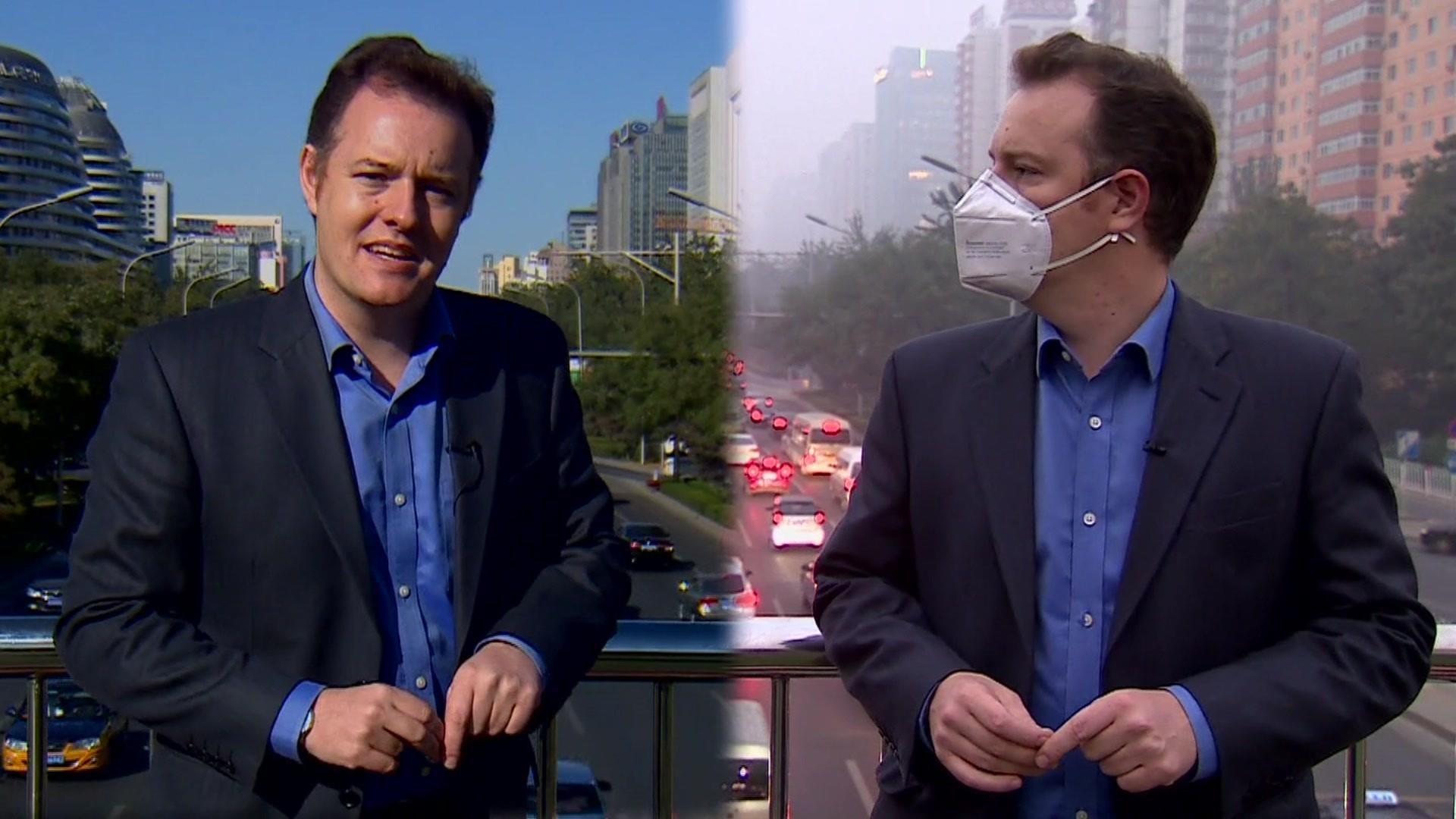China-Japan meeting: Media welcome talks
- Published
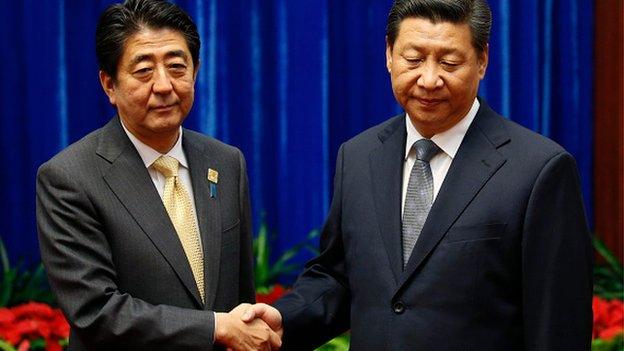
The meeting represented a step forward - but the body language lagged behind, papers say
Papers in China and Japan urge their leaders to go beyond the "symbolic handshake" to improve relations between the two countries.
Chinese President Xi Jinping and Japanese PM Shinzo Abe met on the sidelines of the Asia-Pacific Economic Co-operation (Apec) summit in Beijing on Monday.
Papers see the meeting as a step in the right direction, but note that the leaders had "stiff expressions" when they posed for photographs in Beijing.
Chinese papers blame Mr Abe for the "frosty handshake", while Japanese dailies feel Mr Xi "remained expressionless" due to "harsh public opinion" in China regarding Japan.
Relations between the two countries have long been soured by a row over islands in the East China Sea and historical tensions.
China
Commentaries in Chinese papers urge Japan to not disappoint Beijing's "gesture of goodwill" after a long-anticipated meeting between the leaders.
The Global Times, external observes that both Mr Xi and Mr Abe look "stern" in a picture released by the Xinhua News Agency.
Jia Xiudong, an expert from the China Institute of International Studies, attributes such "lack of passion" to the Japanese government's stance on issues over history, sovereignty and the military.
However, he highlights the significance of the meeting.
"The meeting is important because it has pointed the Abe government to the correct direction, making it possible for the bilateral ties between China and Japan to return to normal as soon as possible," the expert says in a front-page commentary, external in the People's Daily Overseas Edition.
In an unusually mild editorial, the Chinese edition of the Global Times, external calls on Mr Abe to reciprocate China's courtesy.
"Mr Abe must uphold the promises in the consensus reached between China and Japan to make it worthy of the complications and speculations surrounding this meeting," the article says.
However, a section of the media is more cautious regarding the impact of the meeting on Sino-Japanese ties.
Noting the Abe government's "less-than-glorious track record" regarding bilateral ties, the China Daily, external says Japan's words must be "matched with credible actions."
Echoing similar sentiments, a Xinhua News Agency, external commentary adds that the Mr Abe's promises "must be tested by reality".
"It will take work over a long period of time before the bilateral ties [between China and Japan] will become stable. In particular, the Japanese government needs to show that it cherishes this rare opportunity with actions," it says.
Japan
Japanese papers too see the meeting as an "important" step towards a establishing a "realistic framework for coexistence".
An article in the Nikkei Asian Review, external says Mr "Xi and Mr Abe wore stiff expressions when they shook hands Monday - no surprise, given that it was the first formal meeting between the leaders of China and Japan in three years".
But it adds that "the world can take comfort in the fact that leaders of the second and third-largest global economies managed a handshake".
"Unless leaders can cool tempers and build a realistic framework for coexistence, Japan's interests will suffer. China needs Japan, too, if it wants to achieve stable economic growth," it says.
An analytical piece by the Kyodo news agency, external says the meeting was "largely symbolic and the real challenge will be after this [breakthrough]".
"The meeting of about 25 minutes at Beijing's Great Hall of the People was much longer than initially expected, which could well be a harbinger of improved bilateral relations… In an apparent reflection of how difficult the current situation is and how deep bitter memories of Japan's past militarism run in China, Mr Xi did not smile at all in front of cameras as he shook hands with Mr Abe," it says.
The Asahi Shimbun's , externaleditorial says "it is still possible to seek coexistence and co-prosperity even when issues of contention remain".
It urges both countries to "act prudently to affirm that guiding principle" for peace in the region.
A report in The Japan News, external says Mr Xi's "cool response apparently reflects harsh public opinion in China regarding Japan".
BBC Monitoring, external reports and analyses news from TV, radio, web and print media around the world. You can follow BBC Monitoring on Twitter, external and Facebook, external.
- Published9 November 2014
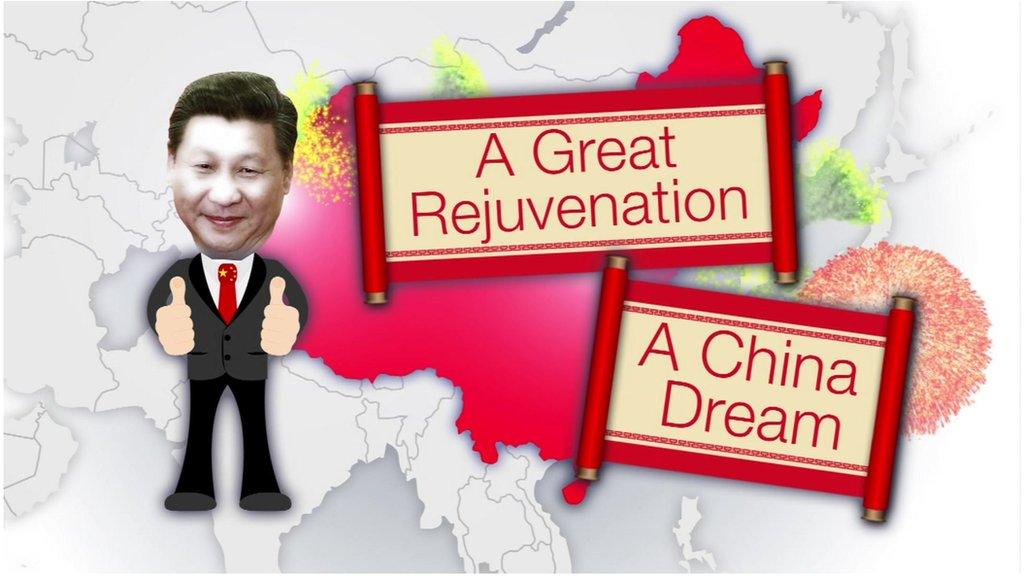
- Published10 November 2014
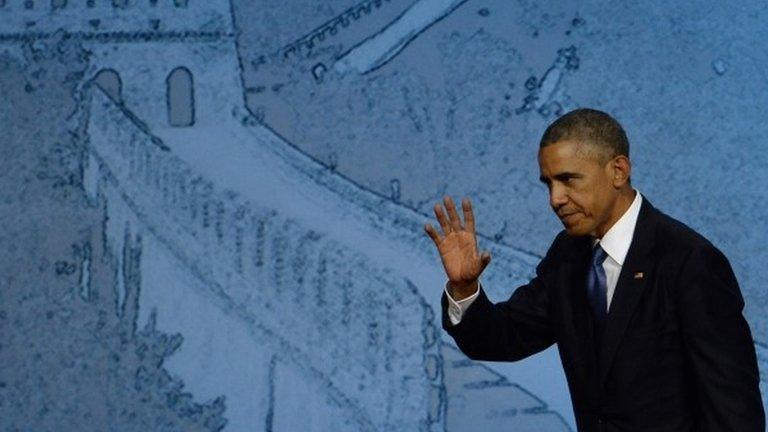
- Published10 November 2014

- Published10 November 2014
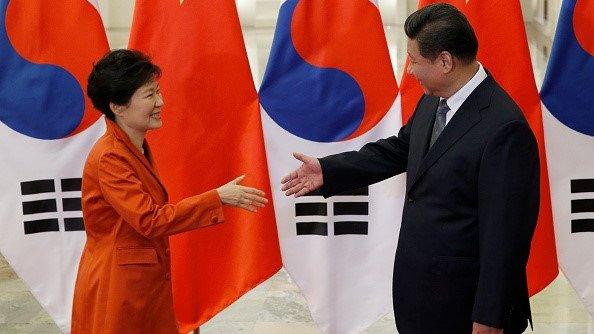
- Published9 November 2014
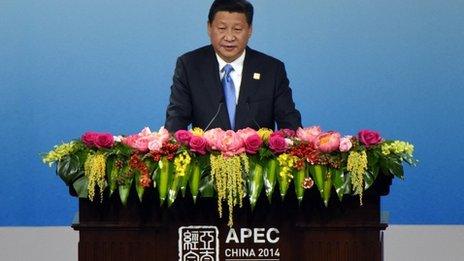
- Published9 November 2014
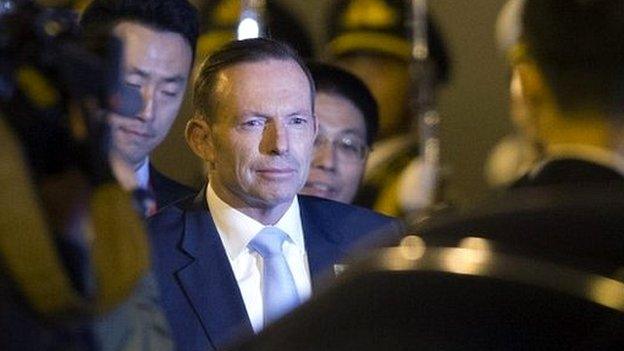
- Published8 November 2014
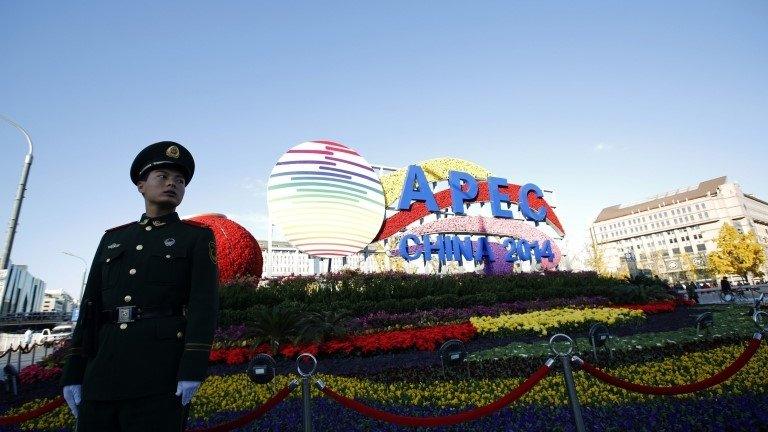
- Published7 November 2014
